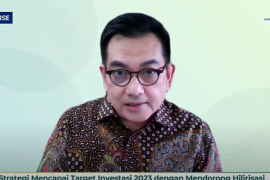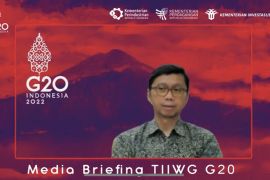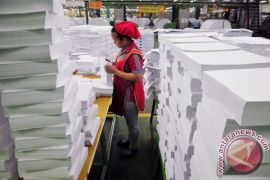"The government will safeguard the steel industry`s interests."Jakarta (ANTARA News) - The government will provide protection for the national steel industry because the price of iron and steel raw materials has increased from US$500 to US$800 per tonne, according to a senior official.
"The government will safeguard the steel industry`s interests. A country is allowed to protect its industrial sector, as per World Trade Organization (WTO) regulations, when the goods flooding the country are sold at what is called dumping prices," said Panggah Susanto, the director general of basic manufacturing industry, here on Wednesday.
He noted that iron and steel products were flooding the Indonesian market as a result of economic crises in a number of countries.
"Indonesia is being flooded by iron and steel products from Japan, South Korea and Taiwan, but investigation has to be conducted to know whether the imported products are threatening the domestic industry," Panggah explained.
In an effort to protect the iron and steel industry at home, he said, the government could impose a 60-70 percent anti-dumping duty on foreign products.
However, in order for such a policy to be imposed, it should first pass through an investigation process, Panggah pointed out.
The director general said 70 percent of the raw materials needed by the national steel industry are imported, while the remaining 30 percent are supplied at home.
"Our total requirement for raw iron has reached 6.5 million tonnes," he added.
The Indonesian Anti-Dumping Committee (KADI) will conduct an investigation if it suspects that products imported into the country are sold at dumping prices, Panggah stated.
High scrap price and imported products are undermining Indonesia`s steel industry, especially in the upstream sector, according to the Indonesian Iron and Steel Association (IISIA).
The association`s general secretary, Edward Pinem, said earlier that imports of raw materials have been hindered by the regulations of the Environment Ministry and the Excise and Customs office.
"The raw materials, namely iron scraps, have been held at ports while domestic supply is still insufficient. Because domestic supply is limited, the prices go up," he said, referring to news reports about 7,000 containers, each with a capacity of 20 tonnes being held at the port.
He said the national steel industry needs a total of 6.5 million tonnes of raw materials annually.
Because the prices of raw materials have gone up, their use at steel industries has gone down, as result of which the prices of industry products have risen, Edward explained.
Before, the price of the raw materials was between US$450 and US$500 per tonne, but it has now risen to US$750 to US$800 per tonne, he continued.
The country`s steel industries are facing a dilemma because high-tech machines cannot be stopped suddenly even for an overhaul once in two years, while production cost keeps increasing and the wage of workers has to be improved as well, Edward noted.
Meanwhile, he added, imported steel products have been flooding the domestic market to make things worse.
(Uu.A014/INE/KR-BSR/S012)
Editor: Priyambodo RH
Copyright © ANTARA 2012










